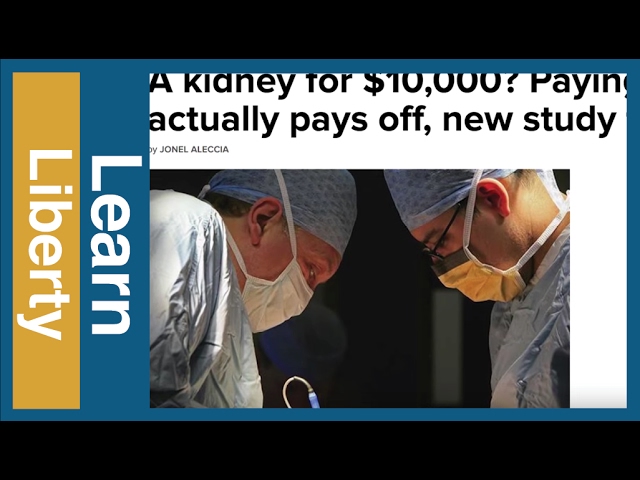Category:Healthcare


It’s time to get rid of the tampon tax
June 13, 2023 | Post
Certain forms of taxation are simply unjustifiable. One especially problematic example is the taxation of menstrual hygiene products, such as tampons. Here’s why the tampon tax is fundamentally regressive and must be scrapped…

Up in smoke: why new restrictions on vaping products are not about public health
May 23, 2023 | Post
Australia’s new ban on single use and non-prescription ‘vapes’ will stretch enforcement and health agencies, give rise to an already rampant black market, and force vapers back onto expensive and harmful cigarettes.

The do’s and don’ts of medical marijuana in Pennsylvania
March 27, 2023 | Post
For many people who suffer from a debilitating illness or who are in chronic pain, medical marijuana has proven to be an effective remedy. Researchers estimate that over 5.5 million Americans are currently using medical marijuana for a variety of conditions, including MS, HIV or AIDS, cancer, chronic pain, IBS, and glaucoma.If you’re thinking about trying medical marijuana in Pennsylvania, here are some tips…

Lessons from Covid about healthcare and sin taxes
November 4, 2022 | Post
Europe is often praised for its public healthcare systems that rely on sin taxes and collectivizing costs. But the Covid emergency propelled into the public debate important flaws in this type of healthcare system

Five myths about healthcare
April 1, 2022 | Post
Healthcare in the United States is Pandora’s Box: even the mere thought of it releases physical and emotional curses upon policymakers.

Everything you hate about healthcare is actually Socialism
March 15, 2022 | Video
How did healthcare in the U.S. get so messy, convoluted, and inefficient? Why is it so hard to know what a simple visit to the doctor — let alone a surgery — will cost?

5 True Lockdown Stories
May 25, 2021 | Video
Five people share their true stories. We interviewed 5 people about their experiences of being under lockdown in Brazil, Nigeria, Greece, India, and the United States. This video tells some of their stories and ideas of how extreme measures have been used by governments everywhere to contain the pandemic – and how much it has […]

“There Will Be Blood” — The Ethics of Compensation for Bodily Fluids
January 11, 2018 | Video
Is human blood a “public resource”? Prof. Peter Jaworski argues that your bodily fluids belong to you, and governments should let you sell them.

Why compassionate people should reject Bernie’s single-payer health care plan
October 5, 2017 | Post
The government has been ruining US health care since 1946.

Reddit AMA with Professor Ilya Somin of George Mason University
September 12, 2017 | Post
Ilya Somin is Professor of Law at George Mason University. His research focuses on constitutional law, property law, and the study of popular political participation.

Will voters punish Republicans for not changing health care?
September 8, 2017 | Post
President Donald Trump claimed Senators who voted against Obamacare’s replacement, the AHCA, had “let down Americans.”

How this screwy IRS policy kickstarted the American health care crisis
September 6, 2017 | Post
As a believer in small government, I usually favor anything that reduces taxes. But this tax break has wreaked havoc on American health care.

Innovation in healthcare could be dangerous, but the alternative is worse.
July 26, 2017 | Post
The relevant alternative to a cheap healthcare provider for a lot of people isn’t a medical doctor — it’s Google.

How thinking harder will let you eat more bacon
July 19, 2017 | Post
Let’s debunk the confusion around the “dangerous” carcinogens in processed meat.

Doctors violate American women’s rights in delivery rooms every day.
July 17, 2017 | Post
Violations of consent during childbirth are surprisingly common.

How the FDA hides its true costs — dollars lost and progress delayed
June 14, 2017 | Post
Want to sell a new medicine? You need to pay $2 million — at least — to the FDA

What About Health Insurance for the Poor?
May 29, 2017 | Video
Bryan Caplan says we could get rid of 95% of government health care intervention, and STILL have subsidized health insurance for the poorest. Watch the full interview

The health care shell game: Why not leave health care policy to the states?
April 28, 2017 | Post
Recent arguments against cutting federal health care spending — and letting states handle insurance regulation — reveal just how unaffordable the Affordable Care Act (Obamacare) is.

Are Americans getting too much healthcare?
April 2, 2017 | Post
During policy debates on healthcare most people assume that more healthcare leads to better outcomes. What if that assumption is false?

Healthcare will never be affordable without action on prices
March 25, 2017 | Post
Republican reformers have repeatedly promised affordable healthcare for all Americans — doubly affordable, in fact. They promise sufficient subsidies to put premiums and out-of-pocket costs within reach of low- and middle-income consumers. At the same time, they promise that the plan will be affordable to the federal budget, even given the constraints their most conservative […]

The House GOP leadership’s health care bill is ObamaCare-Lite — or worse
March 12, 2017 | Post
This bill is a train wreck waiting to happen.

The key questions any Obamacare replacement must answer
March 4, 2017 | Post
What does it really mean to “repeal and replace” Obamacare?

Was Obamacare truly evil, or just a missed opportunity?
February 26, 2017 | Post
I do favor some role for the government. One idea for overcoming the free rider problem is mandatory health saving accounts and catastrophic insurance. (The alternative is letting people who choose not to be insured simply die when they are sick. Even if that’s the right policy, society is not willing to adopt it—so health savings accounts seem like a good second best policy.)

How Bone Marrow Markets Can Save Lives
February 8, 2017 | Video
3,000 Americans die every year for lack of bone marrow donors. Here’s how markets for marrow could save them. Peter Jaworski recaps his testimony to Congress.

